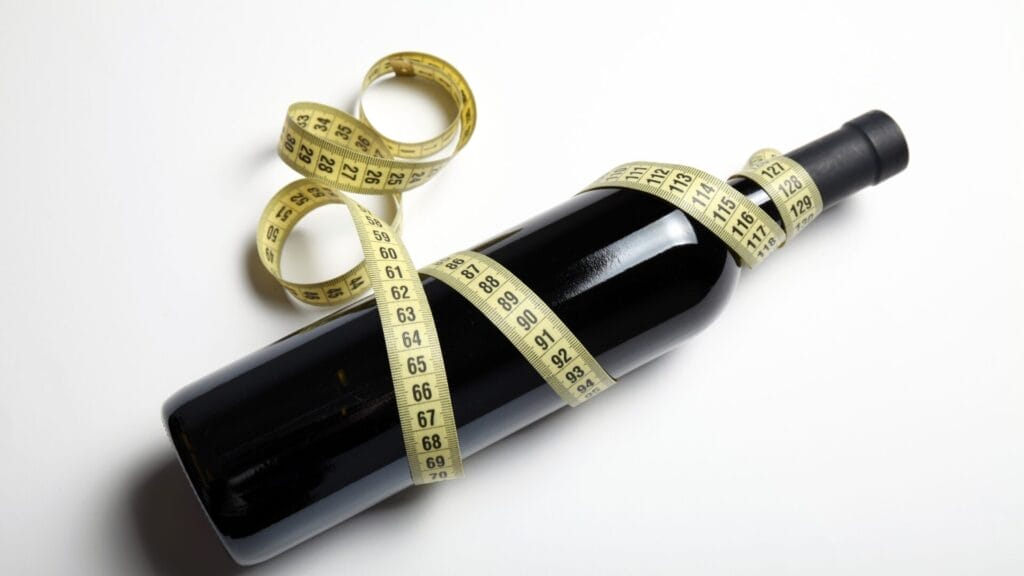Understanding the Carbs in Red Wine
Red wine is often celebrated for its potential health benefits, including antioxidants and heart-healthy properties. But for those mindful of their carbohydrate intake, the question of “carbs in red wine” is crucial. Whether you’re following a low-carb diet, managing diabetes, or simply trying to make healthier choices, understanding the carbohydrate content in red wine can help you enjoy this beverage without guilt.
Table of Contents
How Many Carbs Are in Red Wine?
The carbohydrate content in red wine varies depending on the type and serving size. On average, a standard 5-ounce glass of red wine contains about 3.5 to 4 grams of carbohydrates. This number can fluctuate based on the wine’s residual sugar content, which is the sugar left after fermentation.
Factors Influencing Carbohydrate Content
- Residual Sugar: Wines with higher residual sugar levels tend to have more carbs. Dry wines generally have fewer carbs than sweet wines.
- Alcohol Content: Alcohol itself doesn’t contain carbs, but wines with higher alcohol content might have slightly more carbs due to the sugars involved in the fermentation process.
- Varietals: Different grape varieties produce wines with varying carbohydrate levels. For instance, a glass of Merlot may have a slightly different carb count than a Cabernet Sauvignon.
The Science Behind Carbohydrates in Red Wine
To truly appreciate the role of carbohydrates in red wine, it’s helpful to understand the science behind how they develop. The carbohydrates in wine originate from the sugars found naturally in grapes. During the winemaking process, yeast ferments these sugars into alcohol. However, not all the sugar is converted, leaving behind what is known as residual sugar, which contributes to the carb content of the wine.
Fermentation Process
- Primary Fermentation: This is the initial phase where yeast converts most of the grape sugars into alcohol. The extent to which this process is allowed to complete affects the sweetness and carb content of the final product. Wines that undergo full fermentation will have lower residual sugar and, therefore, fewer carbs.
- Secondary Fermentation: Some wines undergo a secondary fermentation, such as malolactic fermentation, which softens the wine’s acidity but does not significantly alter its carbohydrate content.

Residual Sugar and Its Impact
Residual sugar is the key determinant of the carb content in red wine. Wines labeled as “dry” typically have less than 1% residual sugar, while sweeter wines can have up to 4% or more. Understanding residual sugar is crucial for those on a low-carb diet since even small variations can add up, especially if you’re enjoying more than one glass.
Comparing Carbs in Red Wine with Other Alcoholic Beverages
It’s helpful to compare the carbohydrate content of red wine to other popular alcoholic drinks:
- Beer: A standard beer can contain anywhere from 10 to 20 grams of carbs per serving, making it much higher in carbs than red wine.
- Cocktails: Mixed drinks often have added sugars and can pack anywhere from 10 to 30 grams of carbs per serving.
- Spirits: Pure spirits like vodka, gin, and whiskey have zero carbs, but once mixed with sugary mixers, their carb content increases significantly.

Red Wine and Low-Carb Diets: Can They Coexist?
For those following a low-carb or ketogenic diet, the good news is that red wine can still fit into your lifestyle. The key is moderation and making informed choices about the type of wine you select. Here are some tips:
Choosing Low-Carb Red Wines
- Opt for Dry Wines: Wines labeled as “dry” typically have fewer carbs because most of the sugar has been converted into alcohol during fermentation. Look for dry varieties like Pinot Noir, Merlot, or Cabernet Sauvignon.
- Check for Residual Sugar: Some wine labels or producers provide information on residual sugar. The lower the residual sugar, the fewer carbs in the wine.
Health Benefits of Red Wine Beyond Carbs
While watching your carb intake is important, it’s also worth noting that red wine offers various health benefits:
- Antioxidants: Red wine is rich in polyphenols, particularly resveratrol, which is believed to protect the lining of blood vessels in the heart.
- Heart Health: Moderate consumption of red wine has been linked to a reduced risk of heart disease.
- Longevity: Some studies suggest that the antioxidants in red wine may contribute to increased longevity.
The Role of Red Wine in Weight Management
For many, weight management is a balancing act that involves monitoring calorie and carbohydrate intake. Red wine, when consumed in moderation, can be part of a balanced diet. However, it’s important to account for the carbs and calories in red wine to ensure it fits within your dietary goals.

Calorie Count in Red Wine
While this article focuses on carbohydrates, it’s also worth noting the calorie content of red wine. A standard 5-ounce glass of red wine contains approximately 125 calories, which comes from both alcohol and carbohydrates. The calorie content can vary slightly based on the wine’s alcohol and sugar content.
Wine and Satiety
Some studies suggest that alcohol can stimulate appetite, potentially leading to overeating. However, when red wine is consumed with a meal, particularly one rich in protein and fiber, it may enhance satiety and slow down the meal’s overall calorie consumption. Pairing red wine with foods that are low in carbs and high in protein, such as lean meats and leafy greens, can help mitigate the potential for overindulgence.
Balancing Wine and a Healthy Lifestyle
Enjoying red wine while maintaining a healthy lifestyle is possible with a few mindful practices:
Moderation is Key
- Serving Size: Stick to a standard serving of 5 ounces to keep your carb intake in check.
- Frequency: Limit your wine consumption to a few times a week rather than daily to avoid unnecessary carb intake.
Pairing with Low-Carb Foods
- Cheese and Wine: Cheese, which is low in carbs, makes an excellent pairing with red wine. Opt for hard cheeses like Parmesan or cheddar.
- Meats and Greens: Grilled meats, especially lean cuts, and green vegetables also pair well with red wine and are low in carbs.

Navigating Social Situations While Watching Carbs
Social events and gatherings often involve alcohol, and it can be challenging to stick to a low-carb lifestyle in these settings. Knowing which wines are low in carbs and having a strategy in place can help you enjoy these events without compromising your dietary goals.
Making Informed Choices at Restaurants
When dining out, choosing a low-carb option can be straightforward if you know what to look for:
- Ask for Dry Wines: Don’t hesitate to ask your server about the dryness of the wine. If you’re uncertain, opt for varietals known to be dry, such as Chianti or Zinfandel.
- Check Wine Lists: Some restaurants may list the residual sugar or the sweetness of wines on their menu. Use this information to guide your choices.
- Consider Portion Control: Restaurants often serve wine in larger glasses than the standard 5-ounce serving. Be mindful of how much you’re drinking to keep carb intake in check.
Handling Wine at Home
When enjoying wine at home, you have more control over your portion sizes and the wine selection:
- Measure Your Pour: Invest in a wine glass with measurements or use a measuring cup to ensure you’re sticking to a 5-ounce serving.
- Choose Wisely: Stock your wine rack with low-carb options. Research and buy wines from vineyards known for producing dry wines with minimal residual sugar.
Debunking Myths About Red Wine and Health
There is a wealth of information out there about red wine, and not all of it is accurate. Let’s clarify some common myths to help you make more informed decisions about your wine consumption.
Myth 1: Red Wine Is Always Healthy
While red wine has been associated with various health benefits, it’s not a magic bullet. The health benefits of red wine are linked to moderate consumption, typically defined as one glass per day for women and two glasses per day for men. Excessive drinking can negate these benefits and lead to serious health issues, including weight gain, liver disease, and an increased risk of certain cancers.
Myth 2: All Organic Wines Are Low in Carbs
Organic wines are made from grapes grown without synthetic pesticides, herbicides, or fertilizers. However, the carbohydrate content of organic wines is similar to that of conventional wines, as it’s primarily determined by the grape’s natural sugars and the winemaking process. While organic wines might be a healthier choice in terms of pesticide exposure, they do not necessarily have fewer carbs.
Myth 3: Drinking Red Wine Before Bed Helps You Lose Weight
There is no scientific evidence to support the claim that drinking red wine before bed will help you lose weight. While red wine contains resveratrol, an antioxidant that some studies suggest may support weight loss, the amount present in a single glass is minimal. Moreover, consuming alcohol before bed can disrupt sleep, which can negatively affect weight management.
Understanding the Risks: Who Should Avoid Red Wine?
While red wine can be part of a healthy lifestyle for many, there are certain groups of people who should avoid it or consume it with caution.
Individuals with Alcohol Sensitivity
Some people have a sensitivity or intolerance to alcohol, which can cause adverse reactions such as headaches, nausea, or flushing. These individuals should avoid red wine or consult with a healthcare provider before consuming it.
People with Certain Medical Conditions
Those with conditions like liver disease, pancreatitis, or a history of substance abuse should avoid alcohol altogether. Additionally, individuals on medications that interact with alcohol should also steer clear of red wine.
Pregnant Women
It is generally recommended that pregnant women avoid alcohol due to the risk of fetal alcohol syndrome, which can cause developmental issues in the baby.
FAQs About Carbs in Red Wine
Are there carbs in red wine?
Yes, red wine contains carbohydrates. The carbs primarily come from residual sugars left over after fermentation. On average, a 5-ounce glass of red wine contains about 3.5 to 4 grams of carbohydrates. The exact amount can vary depending on the type of wine and its residual sugar content.
How many carbs are in red wine vs. beer?
Red wine generally has fewer carbs than beer. A 5-ounce glass of red wine contains about 3.5 to 4 grams of carbohydrates, while a standard 12-ounce serving of beer can contain anywhere from 10 to 20 grams of carbs. This makes red wine a lower-carb option compared to most beers.
How many carbs are in red wine Pinot Noir?
A 5-ounce glass of Pinot Noir, a popular variety of red wine, typically contains around 3.4 grams of carbohydrates. Like other red wines, Pinot Noir’s carb content is influenced by its residual sugar and alcohol levels.
How many carbs are in a glass of Cabernet Sauvignon?
A 5-ounce glass of Cabernet Sauvignon typically contains around 3.8 grams of carbohydrates.
Can I drink red wine on a keto diet?
Yes, you can drink red wine on a keto diet, but choose dry varieties with low residual sugar and limit your intake to avoid exceeding your daily carb limit.
How many carbs are in red wine keto?
If you’re following a keto diet, you’ll want to opt for dry red wines, which typically contain about 3.5 to 4 grams of carbohydrates per 5-ounce glass. These dry red wines can fit into a keto diet when consumed in moderation, allowing you to enjoy a glass without significantly impacting your carb limit.
Do sweet red wines have more carbs than dry red wines?
Yes, sweet red wines generally have more carbs due to higher residual sugar content.
How does the carb content of red wine compare to white wine?
Generally, white wines may have slightly fewer carbs than red wines, but the difference is minimal, especially between dry varieties.
Is there a significant difference in carb content between different red wine varietals?
Yes, different red wine varietals can have slight variations in carb content, mainly due to the natural sugar in the grapes and the winemaking process.
Can I reduce the carbs in red wine by diluting it?
While diluting wine with water or club soda can lower the carb content per serving, it also reduces the flavor and overall wine experience.
Final Thoughts: Moderation and Mindfulness Are Key
Understanding the carbs in red wine is just one aspect of making informed choices about alcohol consumption. By focusing on moderation, choosing lower-carb options, and being mindful of your overall diet, you can enjoy red wine as part of a healthy lifestyle. Remember, the key to reaping the benefits of red wine while minimizing potential downsides is to consume it in moderation and pair it with a balanced diet rich in whole foods.
Incorporating red wine into your diet doesn’t have to be complicated. With the right approach, you can savor your favorite glass without compromising your health or fitness goals.







